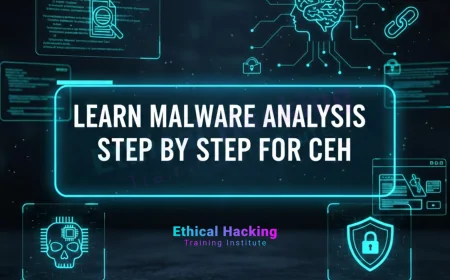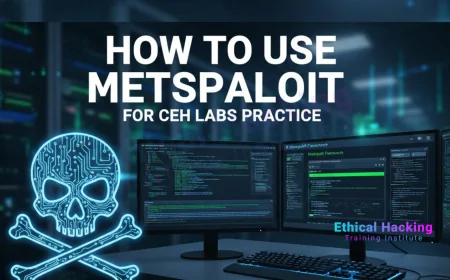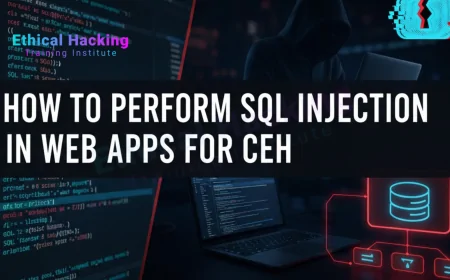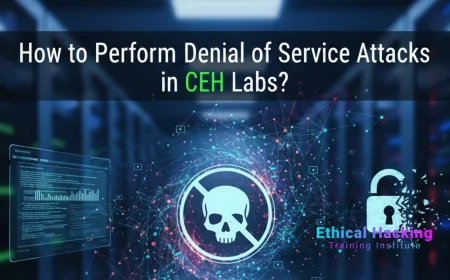Cyber Hacking Course Overview: Learn to Hack Ethically and Secure Networks | Ethical Hacking Course Guide: Master Cyber Attacks and Network Defense
Explore the best cyber hacking courses in 2025. Learn ethical hacking, penetration testing, and network security from industry experts. Ideal for beginners to pros.
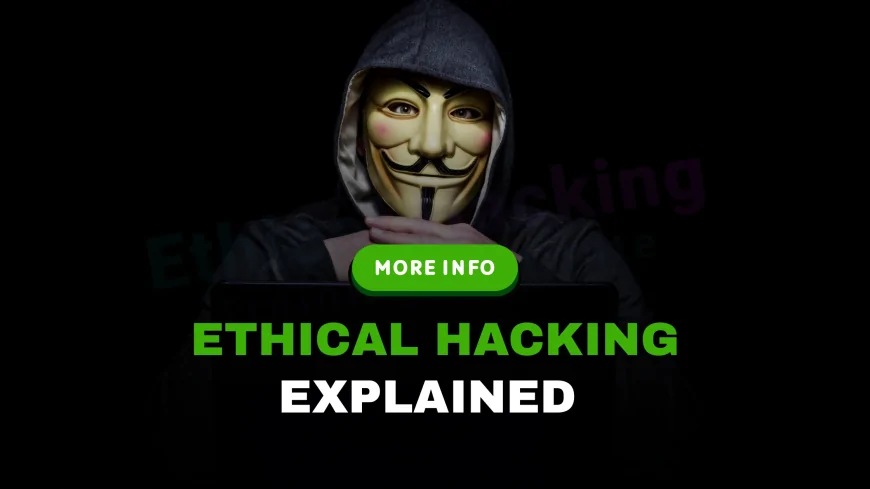
Table of Contents
- Introduction
- Why Learn Ethical Hacking?
- Scope of Cyber Hacking Courses
- Core Skills Taught
- Essential Tools & Platforms
- Typical Course Structure
- Training Modes: Online vs Offline
- Top Certifications Aligned with Course
- Career Paths & Salary Outlook
- Who Should Enroll?
- Prerequisites & Prep Tips
- Course Fees & Duration
- Assessing Course Quality
- Emerging Trends in Ethical Hacking
- Real-World Case Studies
- Importance of Hands-On Labs
- Job Assistance & Internships
- Continued Learning & Renewal
- FAQs
- Conclusion
Introduction
In response to the growing threat landscape, ethical hacking has emerged as a key defense strategy for securing digital infrastructure.Cyber hacking courses teach individuals to think like hackers—with a legal and ethical framework—and secure systems proactively.
Why Learn Ethical Hacking?
- Prevent costly breaches & ransomware
- Qualified professionals in high demand
- Better understanding of attack vectors
- Enhances defensive and response capabilities
Scope of Cyber Hacking Courses
Courses span basic network security up to advanced penetration and red-team training. Topics include cloud, IoT, mobile, web, and wireless security as well as threat hunting, incident response and social engineering evaluations.
Core Skills Taught
- Network scanning, enumeration, and vulnerability analysis
- System hacking and privilege escalation techniques
- Web app testing (SQLi, XSS, CSRF)
- Malware analysis and reverse engineering
- Cloud, IoT & container security strategies
- Cryptography and secure communications
- Social engineering and phishing countermeasures
Essential Tools & Platforms
- Linux distros (Kali, Parrot)
- Nmap, Nessus, Metasploit
- Wireshark, Burp Suite, SQLmap
- Aircrack-ng, John the Ripper, Hydra
- Cloud tools: AWS CLI, Azure tools, Docker
- Reverse engineering: Ghidra, Radare2
Typical Course Structure
Most comprehensive courses include:
- Foundational networking & threat landscape overview
- Core hacking modules (systems, web, mobile)
- Advanced topics (cloud, IoT, malware)
- Hands-on labs and scenario-driven projects
- Capstone projects and certification prep tests
Training Modes: Online vs Offline
| Mode | Pros | Cons |
|---|---|---|
| Online | Flexible, accessible, multimedia | Requires discipline, less peer interaction |
| Offline/Classroom | Live mentorship, group labs, focused learning | Fixed schedule, higher costs |
Top Certifications Aligned with Course
- Certified Ethical Hacker (CEH)
- Offensive Security Certified Professional (OSCP)
- CompTIA PenTest+, Security+
- eJPT, eCPPT, GPEN, Google Cyber Certificate
Career Paths & Salary Outlook
- Penetration Tester: ₹6–20 LPA / $60–120K
- SOC Analyst: ₹4–12 LPA / $50–90K
- Security Consultant / VAPT Engineer
- Cloud Security Engineer / Red Team Specialist
Who Should Enroll?
This course benefits:
- IT & network admins
- Security officers & analysts
- Passionate learners or career changers
- Graduates & degree students in CS/IT
Prerequisites & Prep Tips
- Basic computer / Linux proficiency
- Understanding of TCP/IP and networking concepts
- Familiarity with scripting languages (Python, Bash)
- Curiosity, ethical mindset, and discipline
Course Fees & Duration
Courses typically range from:
- 40–60 hours: ₹25k–₹50k / $400–800
- Bootcamps (5–7 days intensive): ₹30k–₹70k / $500–1,200
- Diploma programs (3–6 months): ₹90k–₹200k / $1,500–3,000
Assessing Course Quality
- Is the provider EC‑Council, Offensive Security, or CompTIA accredited?
- Hands-on lab access and tool availability
- Instructor certifications and real-world experience
- Student reviews, success rate, project portfolio
Emerging Trends in Ethical Hacking
- AI-powered attacks & automated detection
- Ransomware/breach simulations
- Cloud-native and container exploitation
- IoT/OT security in critical infrastructures
Real-World Case Studies
Including:
- Ransomware breach pen test for a financial firm
- IoT botnet simulation used in smart factory testing
- Web app OWASP Top 10 audit for e-commerce platform
Importance of Hands-On Labs
Virtual labs allow you to replicate attacks safely, practice mitigation, and learn tool usage—an essential part of building real-world readiness.
Job Assistance & Internships
- Resume & interview prep
- Industry guest sessions & mentorship
- Access to internship and placement networks
Continued Learning & Renewal
After certification, maintain credentials via:
- EC‑Council credits, webinars, pentests
- Community events like CTF, Bug Bounties, conferences
- Advanced certifications (OSCP, CISSP, LPT Master)
Frequently Asked Questions (FAQs)
1. What is ethical hacking?
Ethical hacking involves authorized testing of systems to discover vulnerabilities before malicious actors can exploit them.
2. Do I need a technical background?
Basic networking and computer knowledge is helpful, but many foundational courses are designed for learners from diverse backgrounds.
3. What tools are covered?
Most courses teach tools like Nmap, Metasploit, Wireshark, Burp Suite, SQLmap, Aircrack, and Ghidra.
4. How long does it take to complete?
Depends on format—bootcamps: 1–2 weeks, regular courses: 1–3 months, diplomas: 3–6 months.
5. Are labs required?
Yes—hands-on labs are essential for mastering concepts and tools effectively.
6. Which certification to pursue?
Start with CEH, then consider advanced credentials like OSCP, eCPPT, and CISSP.
7. Can I do this course online?
Absolutely—many reputable providers offer fully virtual training with virtual labs.
8. What is the average salary?
Entry-level roles start at ₹4–8 LPA in India and $60–80K globally; mid-level earns ₹8–20 LPA and $100K+.
9. Do I obtain an exam voucher?
Often included in course fees, especially from accredited institutions.
10. Is prior certification required?
No—but advanced certs may require previous credentials or work experience.
11. How do I choose a provider?
Look for accreditation, lab access, instructor quality, student reviews, and placement records.
12. What is red teaming?
Red teaming simulates advanced targeted attacks to test real-world defenses across an organization.
13. Can I freelance after certification?
Yes—many certified professionals work as consultants or participate in bug bounty programs.
14. What is vulnerability assessment?
It’s the process of identifying and reporting vulnerabilities without necessarily exploiting them.
15. Are ethical hackers in demand?
Yes—cybersecurity talent remains in high demand due to increasing threat complexity.
16. Will this course teach cryptography?
Basic cryptographic principles are covered; advanced ciphers may require specialized study.
17. Do courses teach defensive techniques?
Yes—best courses include defensive strategies, incident response, and mitigation planning.
18. What is social engineering?
Techniques used to manipulate people into giving up sensitive information or performing actions that compromise security.
19. How is progress evaluated?
Through quizzes, mock tests, lab exercises, and capstone projects.
20. What comes after this course?
Graduates can pursue roles like pentester, SOC analyst, security consultant, or advance with OSCP/CISSP certifications.
Cyber hacking courses offer more than certifications—they cultivate ethical mindsets, technical fluency, and a career-ready skillset for the digital age. With structured learning, labs, and mentorship, you can develop into a trusted cybersecurity professional prepared to secure networks in 2025 and beyond.
Conclusion
What's Your Reaction?
 Like
0
Like
0
 Dislike
0
Dislike
0
 Love
0
Love
0
 Funny
0
Funny
0
 Angry
0
Angry
0
 Sad
0
Sad
0
 Wow
0
Wow
0






